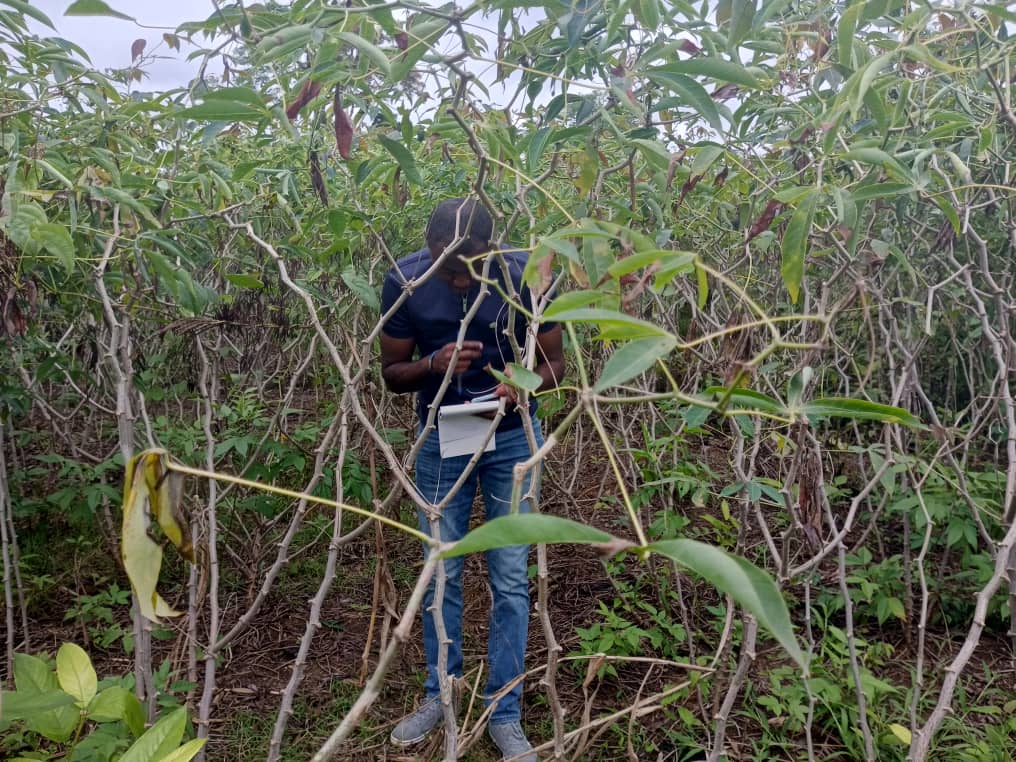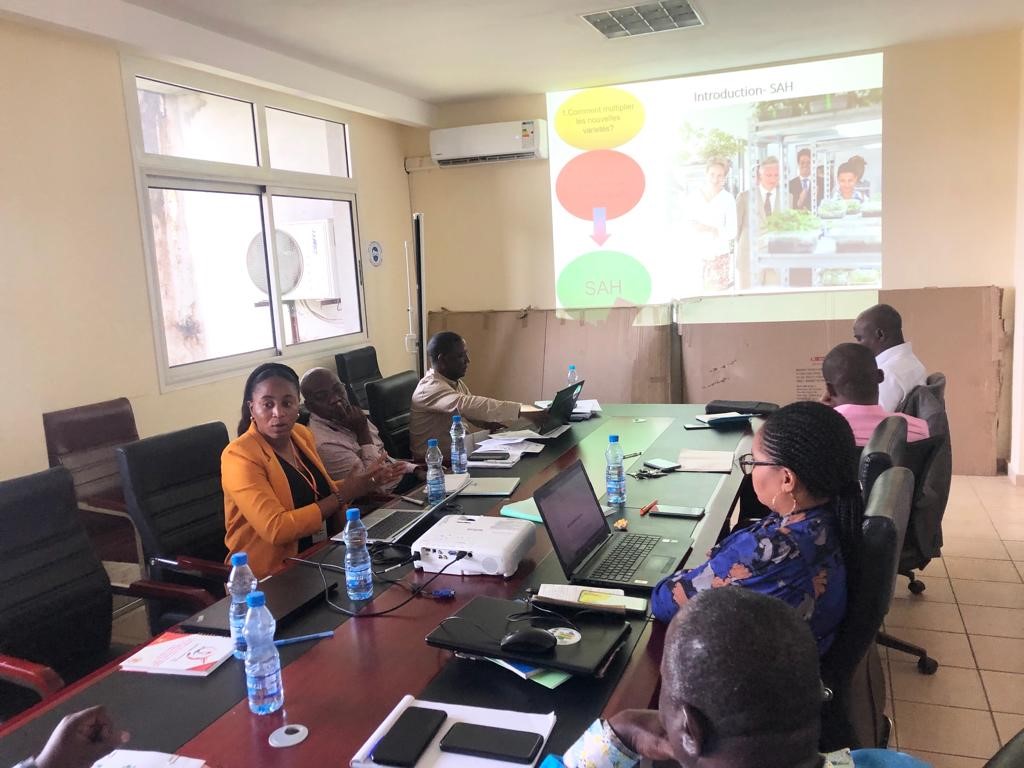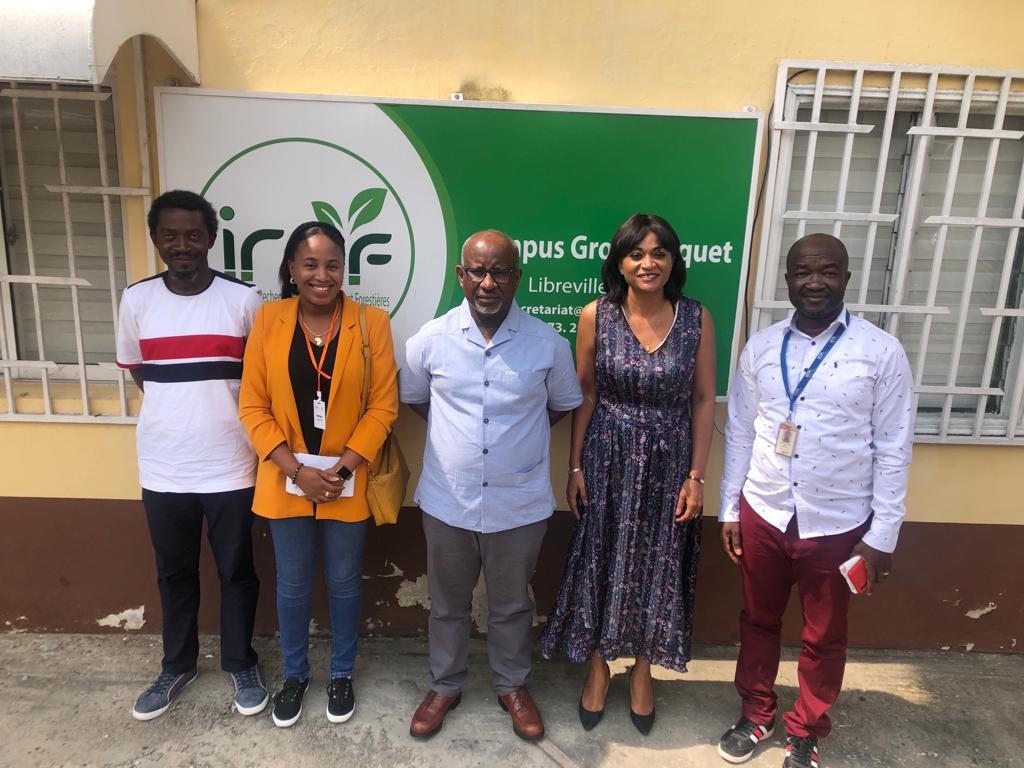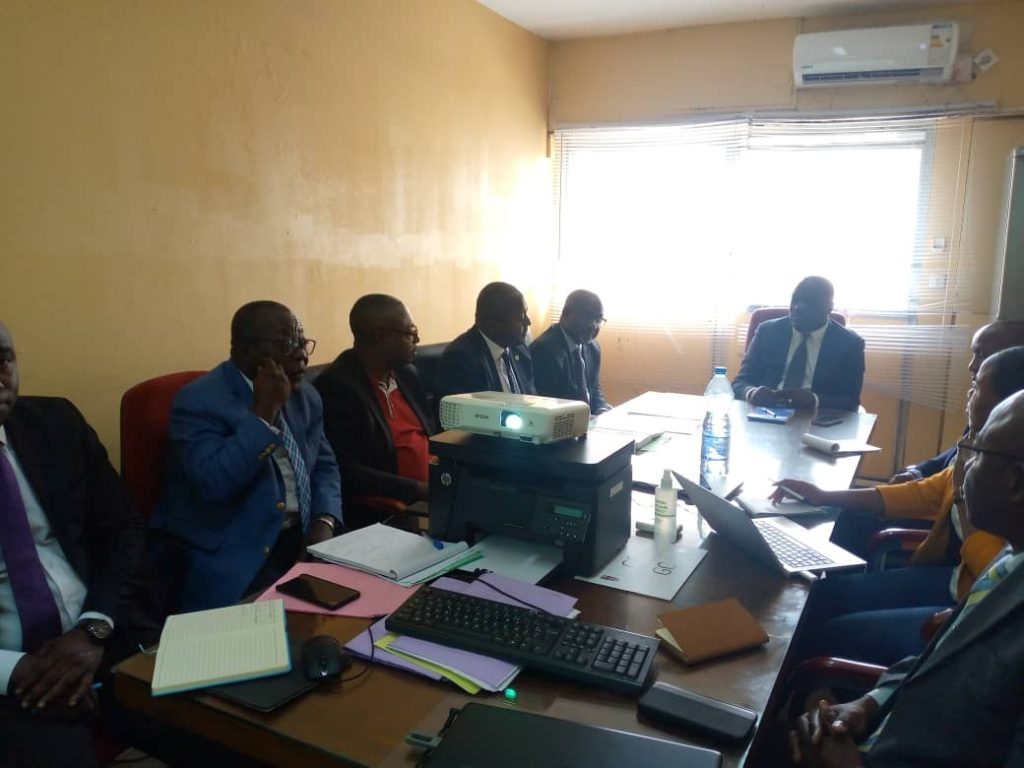TAAT begins work on delivering sustainable seed system in Gabon

About 4000 local varieties are in 17 major cassava-growing countries in Africa but many of these varieties, which are not only high-yielding but also resistant to diseases and pests, are yet to be adopted on a large scale in many countries, including Gabon.
One major challenge with the development of new cassava varieties is multiplying and disseminating the same to farmers in record time. Being a clonal crop, cassava multiplication is done using stems. This process takes several years, hence the prolonged time for new, improved varieties to be disseminated at scale to farmers.
In Gabon, cassava farmers are not deriving much out of the crop due to low-quality planting materials, which lead to poor harvests, hunger and poverty across many of the country’s villages.
To address this, the Government of the Republic of Gabon launched an ambitious agricultural programme called the Grain Phase 1 Support Project (Projet d’appui au Programme Graine Phase 1 (PAPG1).
With support from the African Development Bank, the government of Gabon, through the PAPG1, seeks to boost the production of four food crops, including plantain and cassava. With a focus on strengthening the seed system in the country, PAPG1 is set to increase Gabon’s self-sufficiency in cassava to 100% by 2030 while promoting the sale of an additional 44,000 tons of cassava; and 46,438 tons of banana/plantain, thus creating 5,100 permanent jobs and 17,300 temporary jobs, 75% which will be women and youth.
To achieve the lofty targets of the project, the Government of Gabon, in November 2022, engaged the Technologies for African Agricultural Transformation (TAAT) to drive the attainment of cassava and banana/plantain project objectives.
Through the PAPG1 project, TAAT will strengthen Gabon’s cassava and plantain seed systems by providing 5 million healthy cassava cuttings and 667 thousand plantain tissue culture plants. The government will further multiply these seeds through its agency, the Société de Transformation Agricole et de Développement Rural (SOTRADER), to promote annual crops for further multiplication and distribution to the farmers by December 2023.



TAAT will equally deploy proven technologies through the establishment of the semi-autotrophic hydroponic (SAH) propagation at the national agriculture and forest research institute IRAF (Institut de Recherches Agronomiques et Forestières) and the national institute for agriculture and biotechnology INSAB (Institut National Supérieur d’Agronomie et de Biotechnologies).
The main target of TAAT’s technical assistance is the deployment of the National Roadmap for the Improvement of Seed and Plantain Cassava Production Systems through catalytic support for the introduction of new and improved varieties of cassava and plantain (SAH ™ technology) to produce healthy, high-yielding cassava cuttings and the dissemination of technologies and innovations to improve productivity in the cassava field.
Two national research centers in Gabon, Institut de Recherches Agronomiques et Forestières (IRAF) and Institut National Supérieur d’Agronomie et de Biotechnologies (INSAB), will host the SAH technology.
To fast-track efforts towards implementation, a team of experts from TAAT, in February 2023, were in Gabon to evaluate the current IRAF biotechnology laboratory. The team underlined the urgency of actions needed to renovate the laboratory and adapt it to the rapid multiplication of cassava seeds using SAH and to the conservation of plant material in Vitro as well as the development of agricultural greenhouses for a massive multiplication of cassava plant material.
The team equally presented the SAH technology to the leadership of the Gabonese ministry of Agriculture with concurrent illustrations from the Agenda for Agricultural Transformation in the Democratic Republic of Congo (ATA-DRC) project. A delegation from the Ministry and the PAPG1 project will visit SAH facilities in D.R Congo in the coming weeks.
The team thereafter surveyed local markets to identify available substrates that could be locally adapted for the SAH operations.

